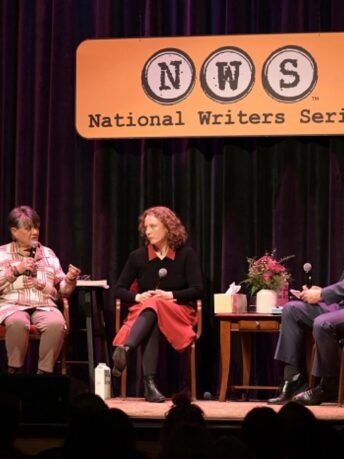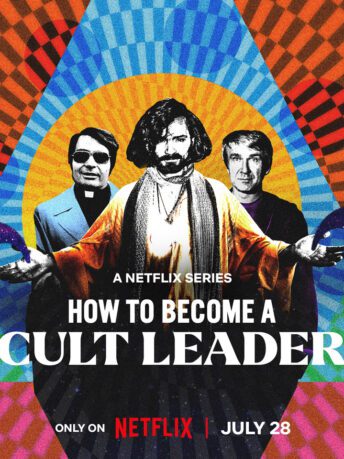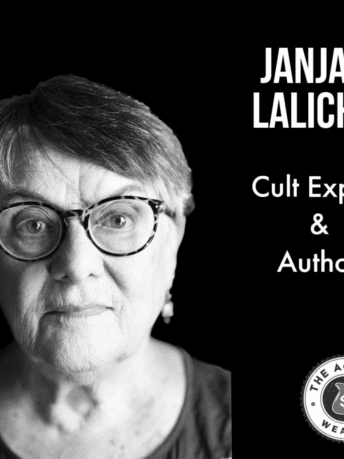Wife, children of Marcus Wesson search for stability after ’04 Fresno murders.
Fresno Bee. Rick Bentley. Published online on Friday, Sep. 11, 2009
Marcus Wesson is in San Quentin prison, waiting to die. In 2004 he murdered nine of his children, exposing a Fresno family scarred by incest and violence to a horrified world.
Speaking publicly for the first time since Wesson’s trial, surviving members of that family say they remain tormented by memories and by guilt. And they say they still suffer humiliation and rejection by some outsiders who know their past.
“I wish with all my heart some days that I was somebody else. But I have to live with this the rest of my life,” said Gypsy, a 25-year-old daughter of Marcus Wesson. “There are some good days and then there are some really bad days,” she said. “People can be so low and so hurtful.”
Many who recognize the Wesson name see family members as part of the evil, not as victims struggling to recover, Gypsy said. “They should say ‘These are the people who survived’ — and see that we aren’t bad people.”
Family kept isolated
Wesson created an isolated world in which he sexually abused his daughters and brutally beat his sons. The few times he allowed family members out, he made the women walk behind him and told them not to make eye contact with anyone. The family, with up to two dozen members, lived in various parts of California housed in tents, a condemned boat and eventually a Fresno home on Hammond Avenue.
It was there on March 12, 2004, jurors later found, that Wesson ordered family members to carry out a murder-suicide pact. An adult daughter and eight of his younger children — most of whom he had fathered with various daughters — died. Images of dead babies being carried from the family’s small home in central Fresno were seen around the world. Several weeks later, in a development not made public at the time, several family members turned to an unusual source for help: a local television reporter who was covering their story.
Committing what she acknowledges was a flagrant breach of journalistic ethics, Alysia Sofios, a reporter with Fresno Fox affiliate KMPH (Channel 26.1), invited Wesson’s wife, Elizabeth, daughter Kiani and niece Rosa Solorio to share her northeast Fresno apartment — an arrangement that continues today.
Now Sofios, who continues to work at the station as a freelancer, has joined the Wessons in writing a book about their life before and after the murders. Sofios said she agreed to write their story because a previous book by former KSEE (Channel 24.1) reporter Monte Francis seemed to leave the Wesson family stuck in the time of the murders.
“I knew personally they had all moved on so much and accomplished so much,” Sofios said. But the first book “made it sound like they were still doing everything Marcus said. I could also see that people didn’t treat them the way I thought they should be treated.”
Elizabeth Wesson, now 50, said she has similar hopes for the book. “My children are judged by what Marcus has done,” she said. “I just want them to understand that it wasn’t their fault. I want them to have a chance in life.” “Where Hope Begins,” which goes on sale Tuesday, tells the family’s story beginning four decades ago in San Jose when Elizabeth, just 8, met Marcus Wesson. Sofios narrates, bouncing from accounts of her life as a TV reporter and supporter of the family to the story of brutal verbal, physical and sexual abuse Marcus used to control and dominate those around him.
San Diego-based true-crime writer Caitlin Rother, a veteran former newspaper reporter, helped Sofios write the book. The pair were brought together by the book’s publisher, Pocket Books, a division of Simon & Schuster.
Reporter seemed kind
Seated next to each other in the home they share, Sofios and Elizabeth Wesson appear strikingly different. The TV reporter is a tall, blue-eyed blonde with a huge personality.
Elizabeth is a small woman with dark hair and dark eyes who still is uncomfortable meeting new people. Their connection is a matter of chance and trust. Sofios was one among many reporters covering the murders. At Marcus Wesson’s arraignment, soon after the crime, two of Wesson’s sons — Almae and Serafino Wesson — by chance sat next to her in the courtroom.
Elizabeth said of all the reporters who wanted her story, she found Sofios most sympathetic. “It was the way that she approached us. She was kind. She was sincere. I just knew as soon as I saw her that she wouldn’t hurt us,” Elizabeth said. The book is based on interviews with family members, court transcripts and diaries some of the Wesson women kept. The family said it placed no restrictions on what Sofios could write.
Not everyone in the family initially shared the trust in Sofios. Serafino said he had deep concerns about the book, fearing it would just add to the family’s suffering. “After everything happened, I had a trust issue. I still have people who don’t want to deal with me as soon as they find out my name,” he said.
Serafino, now 24, works as a security guard. Often, he said, clients have become uncomfortable with him, suspecting his connection to the notorious family. One time, when asked if he was “one of those Wessons,” he lied.
He said an acquaintance who knew of his past recently accused him of being as abusive to his children as his father had been to him. His wife, Chale, has suffered criticism from family and friends as well.
Despite being brutally beaten by his father for misdeeds as trivial as taking a teaspoon of peanut butter, Serafino was one of the strongest supporters of his father — to the point of blocking the door to the Wesson home from police on that fateful day.
That support is gone. As a husband and father, Serafino says, he can’t understand how anyone could hurt a child.
Serafino, Gypsy and Elizabeth said they have had no contact with Marcus, but Sofios traded letters with him while writing the book. That only added, she said, to her hatred for him. “I have always said being in jail was not enough punishment for him. Dying doesn’t bother him because he thinks he will be a martyr,” Sofios said.
“I think after the way he controlled his family, the fact they are doing so well is the best vengeance in the world.” Family members have moved on at different speeds. Gypsy had left the Wesson home by the time Marcus brought them to Fresno in 2003.
At 19, she was the first Wesson daughter to escape his control and later was the first to have a child that was not fathered by Wesson. “I knew what was going on in the house was wrong,” Gypsy said. She used that freedom to get a high school diploma, which Marcus Wesson would not have allowed. Gypsy now attends community college and works as a hotel catering coordinator.
With Wesson’s arrest, family members who survived the murders also found freedom. Elizabeth and the two other women who moved in with Sofios discovered the outside world, seeing movies and swimming pools for the first time.
For Elizabeth, however, acclimation has been difficult. Only in recent months has she been able to leave the small apartment for more than quick trips to the store. Wesson, who was 21 when she met him, began sexually assaulting her at age 8 and married her at 15. He isolated her for decades, leaving her with few job skills. Now she is taking some English and typing classes.
Even that step was not easy.
“The first day I went to the class and they called my name, I ran out of the room crying,” Elizabeth said. She knew there are many who blame her for not doing more to save the children. Even she referred to herself at one point as being “a bad mother.”
Elizabeth came under Marcus Wesson’s control at such an early age that, Sofios believes, she was more like one of his children than a wife. The only world she knew was of subjugation and intimidation — so much so, she said, that even after the murders, she did not at first blame her husband.
“I don’t know why I did that,” Elizabeth says. “Before all of this happened, I was an outcast. I was against everything he was trying to do but my mind shut down at that time. I remember saying those things, but I can’t believe I said them.”
Elizabeth’s response to the domination of Marcus Wesson is typical of those who have been in what one expert calls “no-name” or “family” cults. “It takes years to recover from something like this. You don’t immediately snap out of it,” said Janja Lalich, an assistant professor of sociology at California State University, Chico.
Lalich wrote about the Wesson case in her 2006 book “Take Back Your Life: Recovering from Cults and Abusive Relationships.” She said family cults are more common than people think — because they go undetected unless something attracts the attention of authorities.
Any experience with a cult can leave a person scarred for years, Lalich said. Being raised in a family cult is only more difficult to overcome — “and it goes even deeper when sex and children are involved.”
Thought about leaving
Elizabeth says she thought many times about leaving Wesson but knew he would never let her take the children. Indeed, it was after her nieces Ruby Ortiz and Sofia Solorio, mothers of two Wesson children, tried to get them out of his home that he murdered those children and seven others.
Elizabeth knows she now can move out of town to escape association with that day. But she doesn’t want to leave Fresno because so many of her children live in the area. Many of those children have changed their names. Elizabeth has filed for a divorce and will go back to her maiden name when it is final.
For now, she keeps the Wesson name out of respect for the children.
“It would be like me denying my children who passed away. It has nothing to do with Marcus. I am not ashamed of my children and if I change my name, then what am I taking away from them?” Elizabeth says.
Elizabeth, Gypsy and Serafino call each day another step in the healing process. They hope the book will be the next big step — by changing the way the public sees them.






